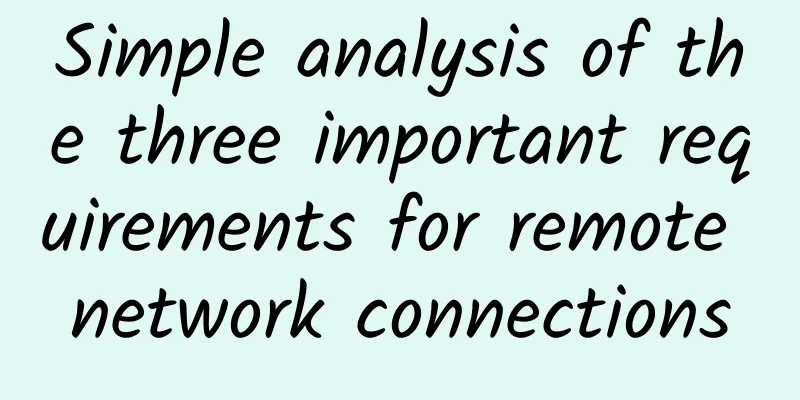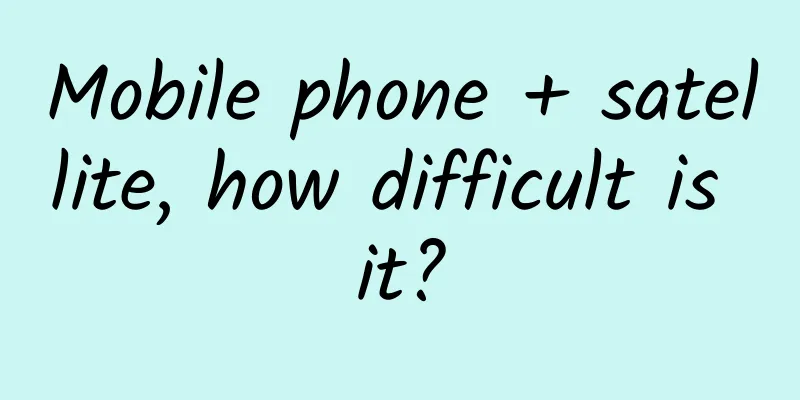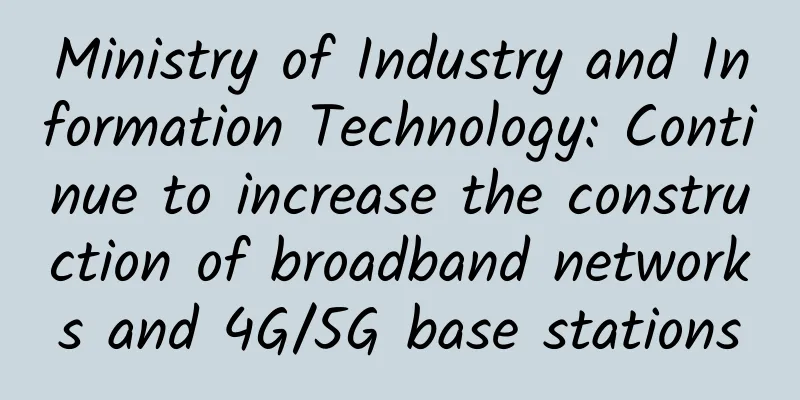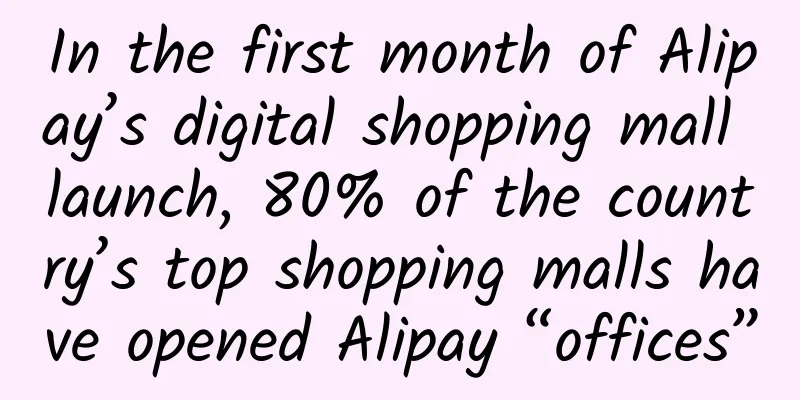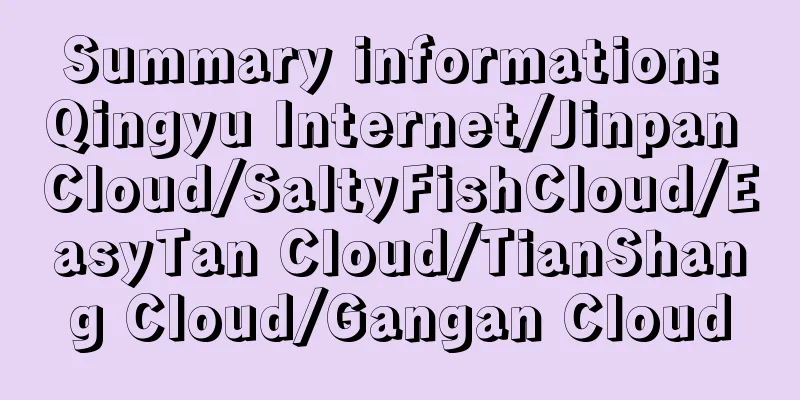Magical IPv6, mobile phones can be assigned independent IP addresses
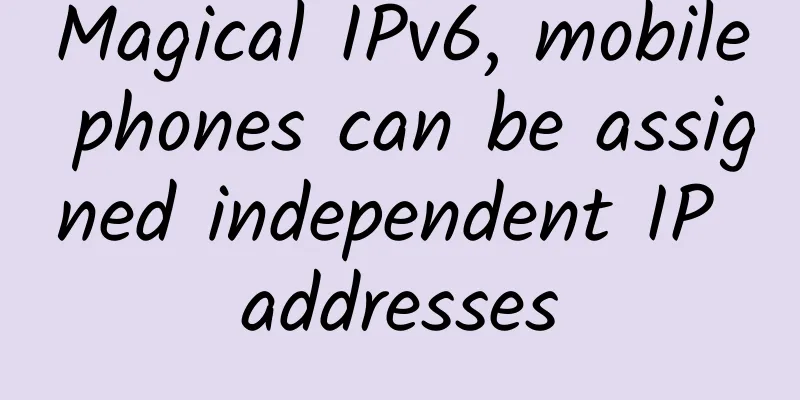
|
At the end of 2017, the country began to promote the popularization of IPv6, and it is expected to reach 500 million users in two years. Now it is the end of 2018, and a large number of people have started using IPV6. It is indeed a trend that is imminent, so let us learn about it today. The main objectives of the action plan are to: •By the end of 2018, a market-driven benign development environment will have been basically formed, with the number of active IPv6 users reaching 200 million, accounting for no less than 20% of Internet users. •By the end of 2020, the market-driven benign development environment will be increasingly improved, the number of active IPv6 users will exceed 500 million, accounting for more than 50% of Internet users, and new network addresses will no longer use private IPv4 addresses. •By the end of 2025, my country's IPv6 network scale, user scale, and traffic scale will rank first in the world. The network, applications, and terminals will fully support IPv6, and the smooth evolution and upgrade to the next generation Internet will be fully completed. The slogan of IPv6 is: connecting everything. It’s similar to the slogan in martial arts novels: “Unify the world.” 1. What is IPv6? Before understanding what IPv6 is, we have to understand why IPv6 was released . Then I would like to ask you if you have such troubles. The IPv4 we use now, and our home network does not use an independent IP address. If you want to use an independent IP address, you have to apply for it , and you may not be able to get it. Why is this so? The reason is that IP resources are limited and the number of IP addresses is about to be exhausted . It is difficult for ordinary individuals to have their own independent IP network. One of the main purposes of popularizing IPv6 is to solve the problem of insufficient IP address resources. 2. So what is IPV6? How is it different from IPV4? What is the biggest difference between IPv6 and IPv4? It is the number of IP addresses. IPv6, as the name implies, is the sixth version of the IP address protocol. We are currently using IPv4, and your current external network address may be a string of numbers like this: 59.123.123.123. The total number is about 4.3 billion , and if you subtract the 192 and 170 address segments dedicated to the intranet, there are even fewer. Since the IPv4 protocol address is 32 bits, the number of addresses it can provide is: 2^32-1 (about 4.3 billion) But not all addresses will be allocated, some addresses are reserved for broadcasting, testing, private network use, etc. These addresses are called private addresses. So the actual number of addresses available for allocation is about 4 billion . In comparison, the world's total population has reached 7.5 billion . Even if each person on earth is given only one IP address, IPv4 addresses are far from enough. Moreover, in the era of the Internet of Things , everyone has more than one smart device (bracelet, wearable device, smart home, etc.)... IPv6 uses 128-bit addresses, compared to the 32-bit addresses used by IPv4: For example, 110000000000000000000000000000011. According to the calculation method above, we can calculate the number of addresses that IPv6 can provide: 2^128-1 (about 340 trillion) IPV6 addresses are extremely abundant and almost inexhaustible . It is said that every grain of sand on the earth can be assigned its own address , not to mention every mobile phone and computer, which can have its own unique IP address, which makes it much more advanced. 3. What is the role of IPv6? Currently, Internet access uses a shared public IP address. After switching to IPv6, even street lights can have independent IP addresses. There are tens of billions of devices in the world, but only more than 4 billion addresses . Since China's Internet started late, it was only allocated 290 million IP addresses, so they are shared. It's not a big deal to surf the Internet, but it becomes very difficult to access an Internet device from the public network , such as checking the camera at home or remotely controlling your computer. After switching to IPv6, each device can have an independent IP address. If combined with the 5G network, each car, street light, camera , mobile phone , trash can, and fire hydrant can have an independent IP address. With the rich addresses of IPv6, all devices can be assigned their own independent IP addresses, making the " Internet of Things " possible. All industries will benefit. As long as any device is assigned an independent IP address, it can be controlled anytime and anywhere, and everything is connected. That’s what we call the connection of everything : In addition to the extremely abundant IP address resources, IPv6 is also more secure and more responsive. IPv6 is more secure and comes with encryption options as standard, making it difficult to crack communications between users and servers. In addition, IPv6 can greatly reduce network latency, from the current 100ms to single digits. Low network latency is not only helpful for gaming, it also makes remote drones and driverless cars feasible. IPV6 avoids the joint risks under shared IP conditions, that is, if other virtual host users on the same server are blocked due to attacks (such as DDOS), violations (such as pornography, gambling and drugs) or policy-related disposal, they will not be implicated. However, if a shared IP has a problem with one user, almost all users on the entire server will be affected. Such problems can only be solved by independent IPs. |
<<: Highlights of Bluetooth Mesh Technology
>>: Edge chips could render some networks useless
Recommend
[Black Friday] TMThosting: 30% off monthly payment for Seattle high-security VPS, 10% off for dedicated servers, supports Alipay
TMThosting has released this year's Black Fri...
The 5G coverage of the three major US operators was accused of false advertising: Verizon can only be connected 9.7% of the time
5G communication networks are reportedly faster t...
Broadband speed increase is in earnest: starting from 100M in big cities!
The government's plan to increase speed and r...
The three major operators have cancelled data roaming charges, and data charges still have room for reduction
Recently, China Mobile, China Telecom and China U...
Gcore (gcorelabs) Russian Khabarovsk VPS simple test
In the last article, I shared the simple test inf...
Bluetooth vs. Bluetooth Low Energy: A Detailed Comparison
Bluetooth Technology Overview When it comes to th...
DediPath: Memorial Day promotion 1Gbps unlimited traffic server from $31.95/month, VPS hosting from $1.75/month
DediPath has launched a Memorial Day promotion, o...
Don’t be bothered by the information of network equipment optical modules anymore! Come and learn these practical tips!
The optical module power is abnormal! What should...
Excellent use cases and benefits of edge computing
The use of edge computing in the enterprise will ...
HostYun: Hong Kong/Japan/Australia/Russia/South Korea/Los Angeles, etc. CN2 GIA/AS9929 monthly payment starts from 16 yuan
HostYun is a long-established low-cost VPS hostin...
Top 10 technology trends governments should watch in 2021
[[391593]] The pandemic has forced government age...
Why edge computing is central to the development of the Internet of Things
Many connected devices today are able to take adv...
ABC in the eyes of communication professionals...
[[375451]] As a communications engineer, I am exp...
Cisco and partners work together to build the Cisco (Guangzhou) Smart City industry ecosystem
In order to accelerate the development of Cisco (...
[6.18] Megalayer flash sale: Hong Kong independent server starts from 199 yuan/month, high-defense server starts from 299 yuan/month
At the beginning of the month, we shared Megalaye...
![[Black Friday] DediPath: Dedicated servers in multiple data centers in San Jose/Los Angeles/New York/Dallas starting from $39/month](/upload/images/67cac01eb166c.webp)
